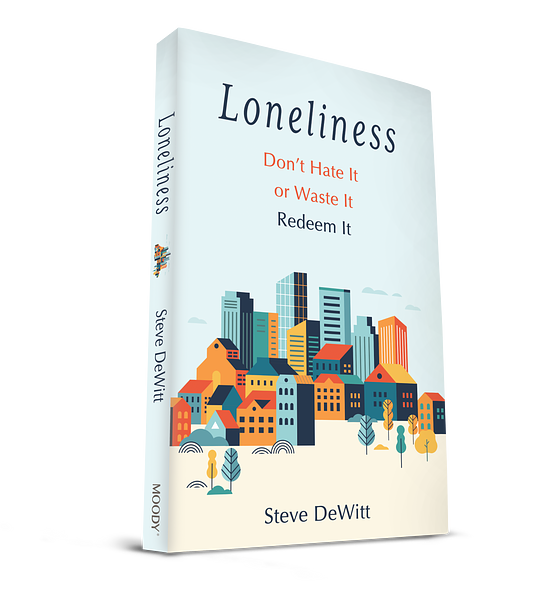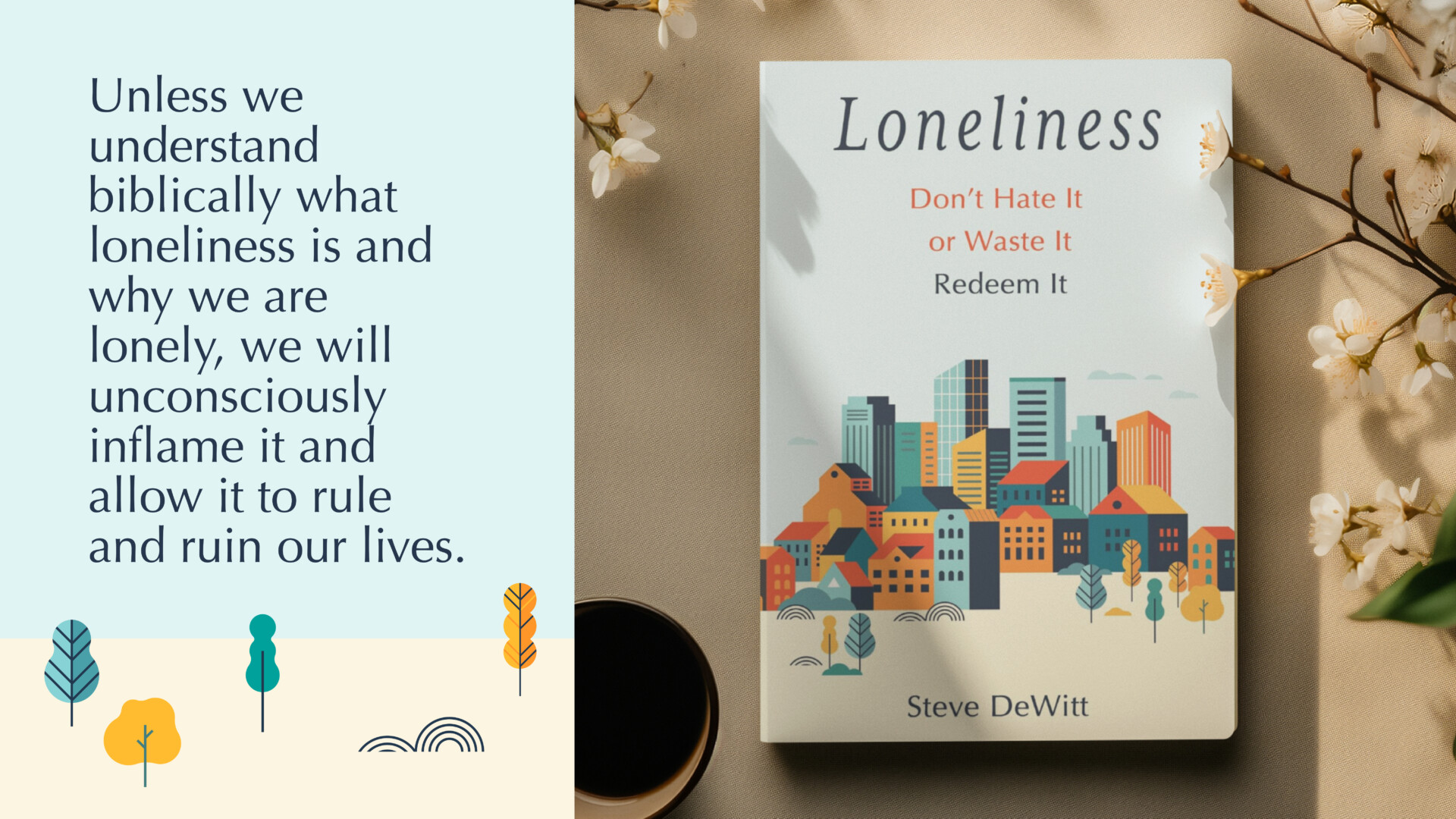This week the blog is sponsored by Moody Publishers and is written by Steve DeWitt.
The story of human loneliness has its roots in the character of God and God’s purpose in creating us.
So God created man in his own image, in the image of God he created him; male and female he created them. And God blessed them. (Gen. 1:27–28)
The roots of our present-day experience of loneliness are all found right here. We were made in the likeness of a relational, communicating, and triune God. His social nature is hardwired into our nature. We were designed for relational fulfillment vertically with God and horizontally with other humans. Like God, these relationships are fulfilling by design to the extent that they are harmonious. God’s threeness is the paradigm for our social needs, and His oneness is the paradigm for human relationships marked by love and peace.
You know, like the old song says: “you don’t know what you’ve got till it’s gone.” Loneliness is first theological before it is existential. Loneliness isn’t the opposite of
relational fulfillment. It is the absence of it. Loneliness is an experiential void and vacuum. Its pain is a backhanded compliment to the pleasure of what God originally designed.
Loneliness isn’t the opposite of relational fulfillment. It is the absence of it.
Steve DeWitt
We are on a crucial truth that I urge you to consider carefully. I know this is hard, as I have had seasons where I was drowning in loneliness. Ask God to renew your mind so that you may think differently about your loneliness. Our feelings generally flow from our knowings, at least what we believe is true about loneliness. Lou Priolo connects these dots:
You see, in order to change your feelings, you have to change your thoughts as well as your actions. So, I would like to suggest (as have others) that loneliness starts as a state of mind before it becomes a feeling. The way you think about being alone affects the way you feel about it. If, for example, you believe that to avoid being lonely you must always have another human being at your side, you are likely to be a very lonely person indeed.
The depth of your loneliness signals the opposite height of your potential joy. Think of it like a swing. My young daughters love to swing and love me to push them as they swing. The higher, the better. I do a run-under to get them as high as possible. They squeal in delight as they swing to the opposite side equally high.

Let’s be honest. Loneliness pain is acute. It can be overwhelming. Debilitating. Even life-threatening. Yet the pain can be part of the cure if we understand the pain like a swing; the greater the pain, the greater the potential pleasure. God made us to feel emotionally the absence of the presence of His purpose. I am convinced this is why we feel lonely in the manner we do.
The absence of a reconciled relationship with our Creator is spiritual pain, and the lack of meaningful relationships with others is social pain. It is intended to prod us toward what is best for us. This is God’s grace, and it applies both vertically and horizontally. In this way, loneliness is a gift from God.
To continue reading an excerpt of Loneliness Don’t Hate It, or Waste It Redeem It.










